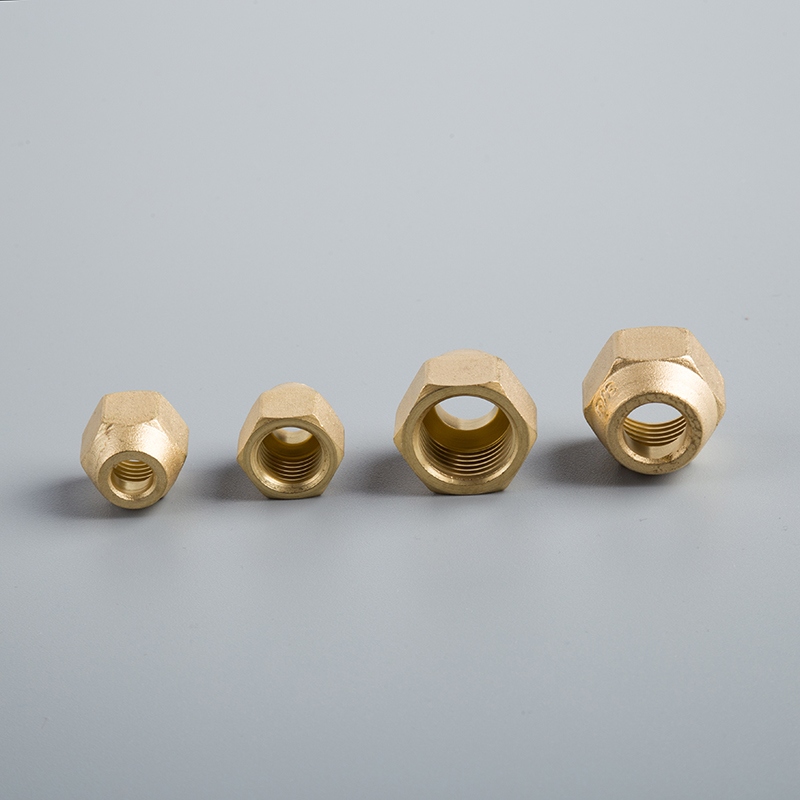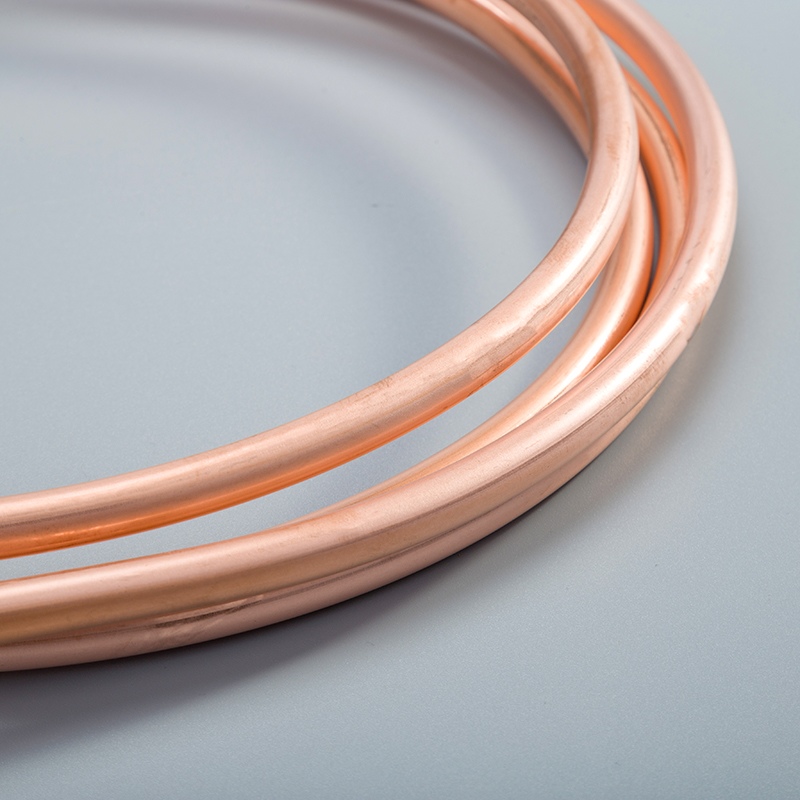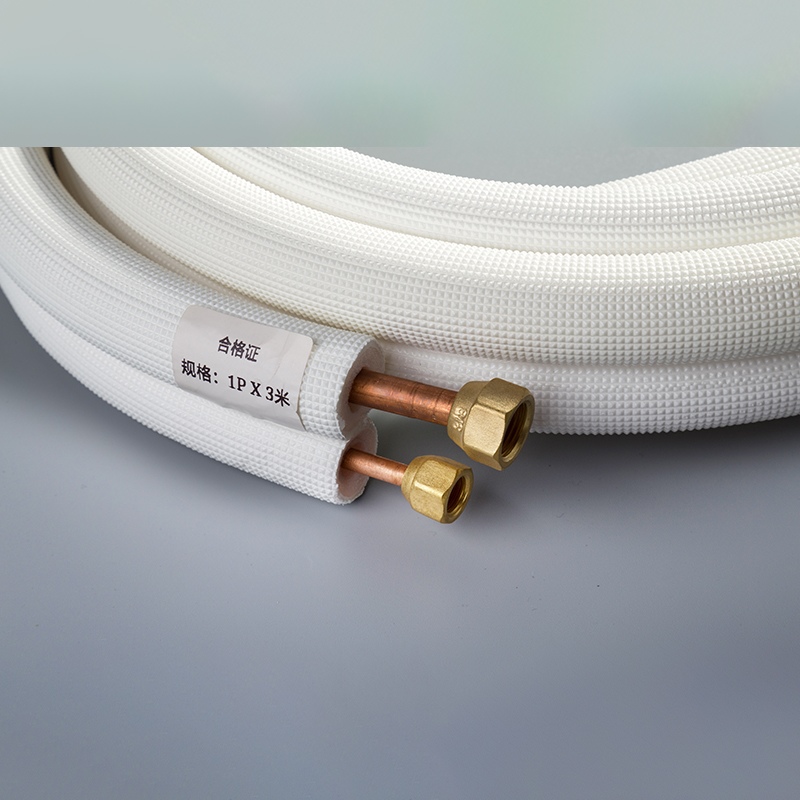How to Clean Copper Pipes Effectively: A Step-by-Step Guide

Copper's natural antimicrobial properties play a crucial role in maintaining water quality within plumbing systems. This metal actively inhibits the growth of harmful bacteria, ensuring that water passing through copper pipes remains safe and clean for consumption. Unlike other materials, copper does not leak chemicals into the water supply, providing a reliable source of clean water. In this guide, we will explore the significance of clean copper pipes, different cleaning methods available, including the use of a copper pipe cleaning tool, and the importance of regular maintenance to uphold water quality standards. Additionally, we will discuss the role of copper pipe compression connectors and the copper pipe compression tool in ensuring a secure and efficient plumbing system.
Tools and Materials

When it comes to cleaning copper pipes effectively, having the right tools and materials is essential. Let's explore the essential tools required for this task:
Essential Tools
Copper pipe cleaning tool: A Tu-Turn copper fitting brush is a handy tool that ensures both the inside and outside of copper fittings are thoroughly cleaned before soldering. This step is crucial as any particles left on the fittings can result in a poor seal, affecting the overall plumbing system.
Copper pipe compression tool: For cleaning copper pipe couplings, a Tu-Turn copper pipe coupling brush is indispensable. Cleaning the interior and exterior of these couplings before soldering is necessary to prevent any debris from compromising the seal. Using this tool guarantees a clean surface for secure connections.
Moving on to the necessary materials, here are some items you should have on hand:
Necessary Materials
Vinegar and salt: Mixing these two common household items creates a powerful solution for removing tarnish from copper pipes quickly and effectively.
Acetone and soap: Dampening a rag with acetone to wipe down the pipes, followed by soap and water, can help in achieving clean copper surfaces.
Steel wool: While using steel wool requires caution to avoid scratching, it can be effective in removing external build-up or rust from copper pipes.
Chemical cleaners: Opting for chemical calcium, lime, and rust removers or creating a natural cleaner with vinegar can provide additional options for deep cleaning when needed.
Having these tools and materials readily available will ensure that you can tackle any cleaning task related to your copper pipes efficiently.
Cleaning Methods

Basic Cleaning
Vinegar and Salt Method
To effectively clean copper pipes using the vinegar and salt method, start by mixing a tablespoon of salt in a cup of white vinegar. This simple yet powerful solution creates a chemical reaction that swiftly removes tarnish from the copper pipes within seconds. Using a soft cloth, rub the salt-and-vinegar mixture onto the copper pipe to ensure thorough cleaning.
Acetone and Soap Method
Another effective way to clean copper pipes is by dampening a rag with acetone and wiping down the pipes. Follow this step by using soap and water to achieve clean surfaces. This method helps in removing any dirt or grime buildup on the pipes, ensuring they remain in optimal condition.
Deep Cleaning
Immersion in Weak Acid
For a more thorough cleaning process, consider immersing the copper pipe in a weak acid solution made with vinegar or muriatic acid. This method is particularly useful for tackling stubborn stains or deep-seated dirt on the surface of the pipes. Ensure safety precautions are taken when working with acids.
Using Chemical Cleaners
In cases where traditional methods may not suffice, using chemical cleaners specifically designed for copper pipes can be an effective solution. Opt for calcium, lime, and rust removers or create a natural cleaner using vinegar to address tough stains or mineral deposits effectively.
Polishing
Using Vinegar
To give your copper pipes a shiny finish, consider polishing them with vinegar. Simply apply vinegar to a soft cloth and gently rub it onto the surface of the pipe. This method not only cleans but also adds a lustrous sheen to the copper, making it look brand new.
Using Ketchup
Surprisingly, ketchup can also be used as a polishing agent for copper pipes. Apply ketchup to a cloth and use it to polish the surface of the pipe. The mild acidity of ketchup helps remove tarnish and restore the shine of the copper effectively.
By following these cleaning methods, you can ensure that your copper pipes remain clean, free from contaminants, and maintain their efficiency over time.
Maintenance Tips
Regular Cleaning
To maintain the longevity and efficiency of your copper pipes, regular cleaning is essential. By preventing oxidation through consistent maintenance, you ensure that your plumbing system remains in optimal condition. This proactive approach not only safeguards the quality of your water but also prolongs the lifespan of your copper components.
Preventing Oxidation
Preventive measures are key to avoiding oxidation on copper pipes. By implementing a routine cleaning schedule, you can inhibit the formation of tarnish and corrosion. This simple yet effective practice involves using natural cleaners like vinegar and salt to keep your copper surfaces gleaming. Remember, a little effort today can prevent costly repairs tomorrow.
Maintaining Effectiveness
Maintaining the effectiveness of your copper pipes requires diligence and care. Regular inspections for signs of wear or damage can help you address issues promptly. Additionally, utilizing copper pipe compression connectors ensures secure connections that enhance the overall performance of your plumbing system. By staying proactive and attentive, you guarantee that your copper infrastructure functions optimally for years to come.
Handling Corrosion
When faced with corrosion on your copper pipes, swift action is crucial to prevent further damage. Addressing green corrosion promptly not only preserves the aesthetics of your plumbing but also maintains its structural integrity.
Removing Green Corrosion
To tackle green corrosion effectively, utilize gentle abrasives like salt or a mixture of vinegar to restore the luster of your copper pipes. These natural remedies are safe and environmentally friendly, ensuring that you maintain a clean and healthy water supply throughout your home.
Using Copper Pipe Compression Connectors
In cases where corrosion has compromised the integrity of your copper pipes, consider using copper pipe compression connectors as a reliable solution. These connectors provide a secure seal that prevents leaks and enhances the durability of your plumbing system. With their easy installation process, you can quickly replace damaged sections without extensive repairs.
By incorporating these maintenance tips into your routine, you safeguard the functionality and longevity of your copper pipes, ensuring a reliable water supply for years to come.
Copper pipes provide peace of mind and reduce the need for frequent maintenance, making them a cost-effective choice in the long run.
Copper pipes contribute to maintaining water quality within a plumbing system by inhibiting the growth of harmful bacteria, ensuring safe and clean water for consumption.
Choosing copper ensures a plumbing solution that stands the test of time, as copper pipes have exceptional resistance to corrosion, contributing to the longevity and reliability of plumbing systems.
Maintaining copper pipes through correct installation and monitoring ensures long-term functionality, as they ensure a steady flow and minimal leaks due to their corrosion resistance.
See Also
Efficient Maintenance Guide for Copper Pipe Systems
Beginner's Guide: Soldering Copper Pipes Made Easy
Pro Tips: Mastering Copper Pipe Measurement Techniques
Quick Fixes: Repairing Copper Pipe Leaks with Ease
Comprehensive Guide: Becoming an Expert in Copper Pipe Fittings


